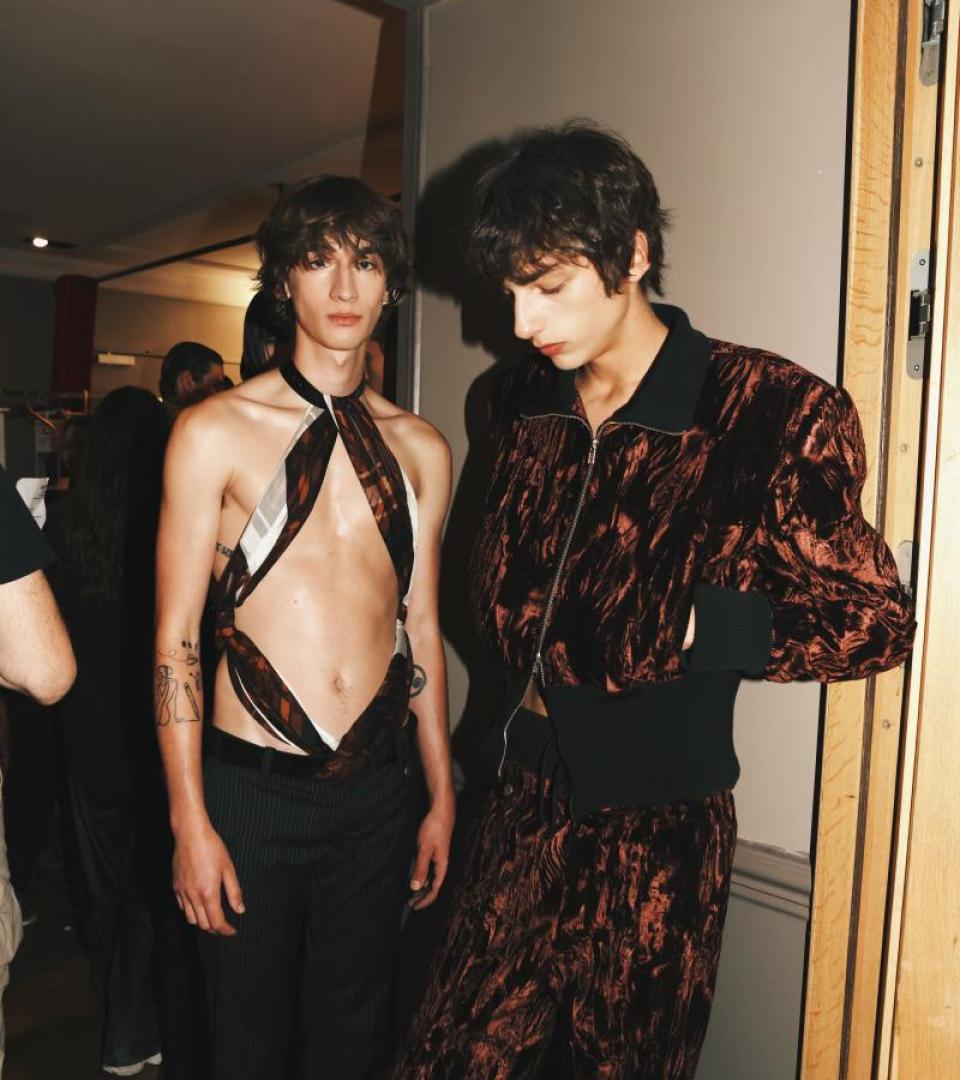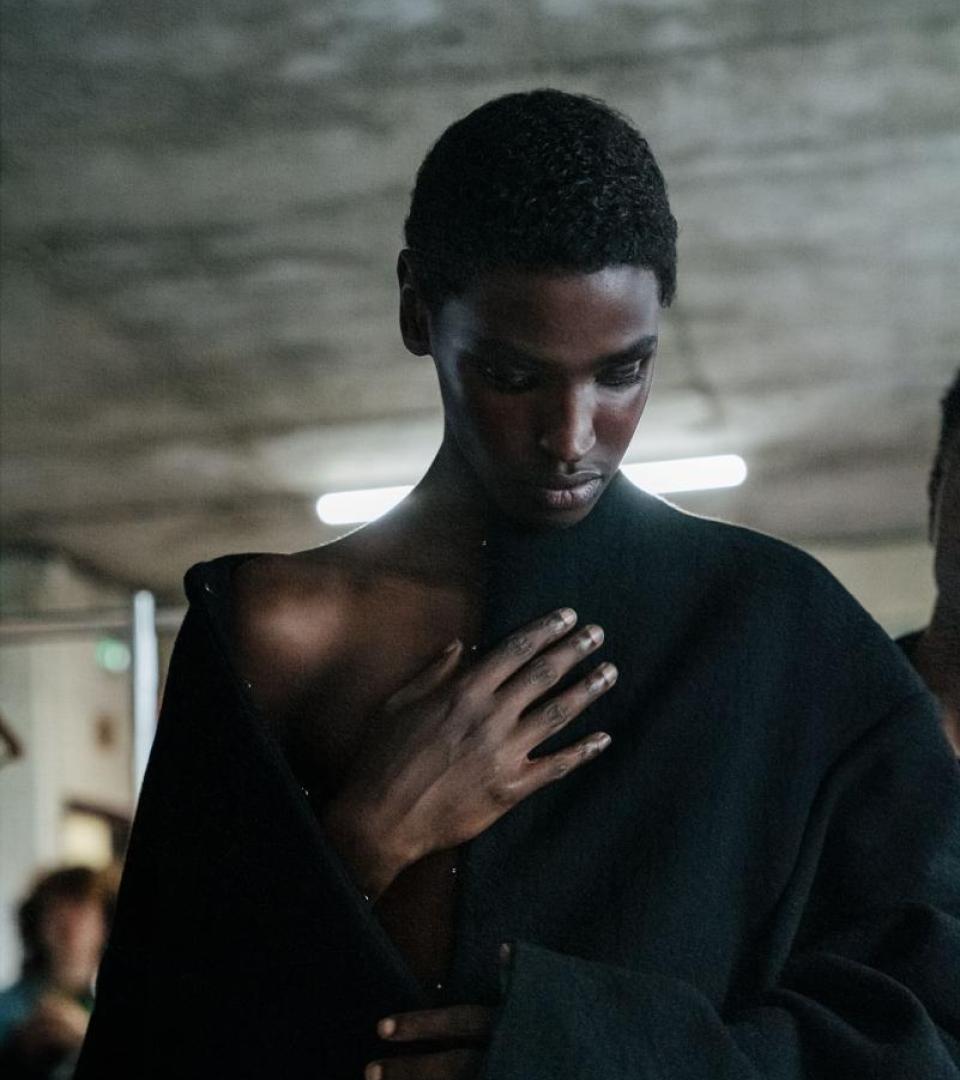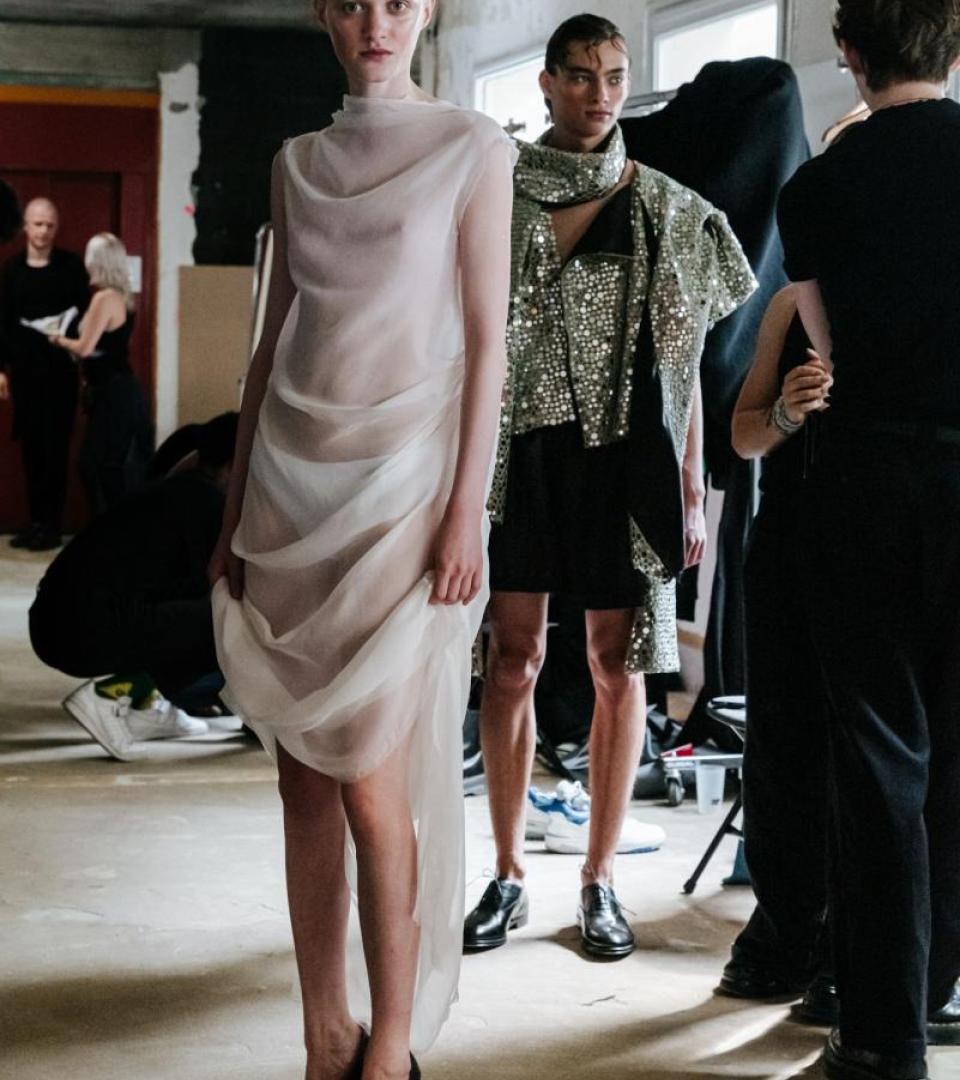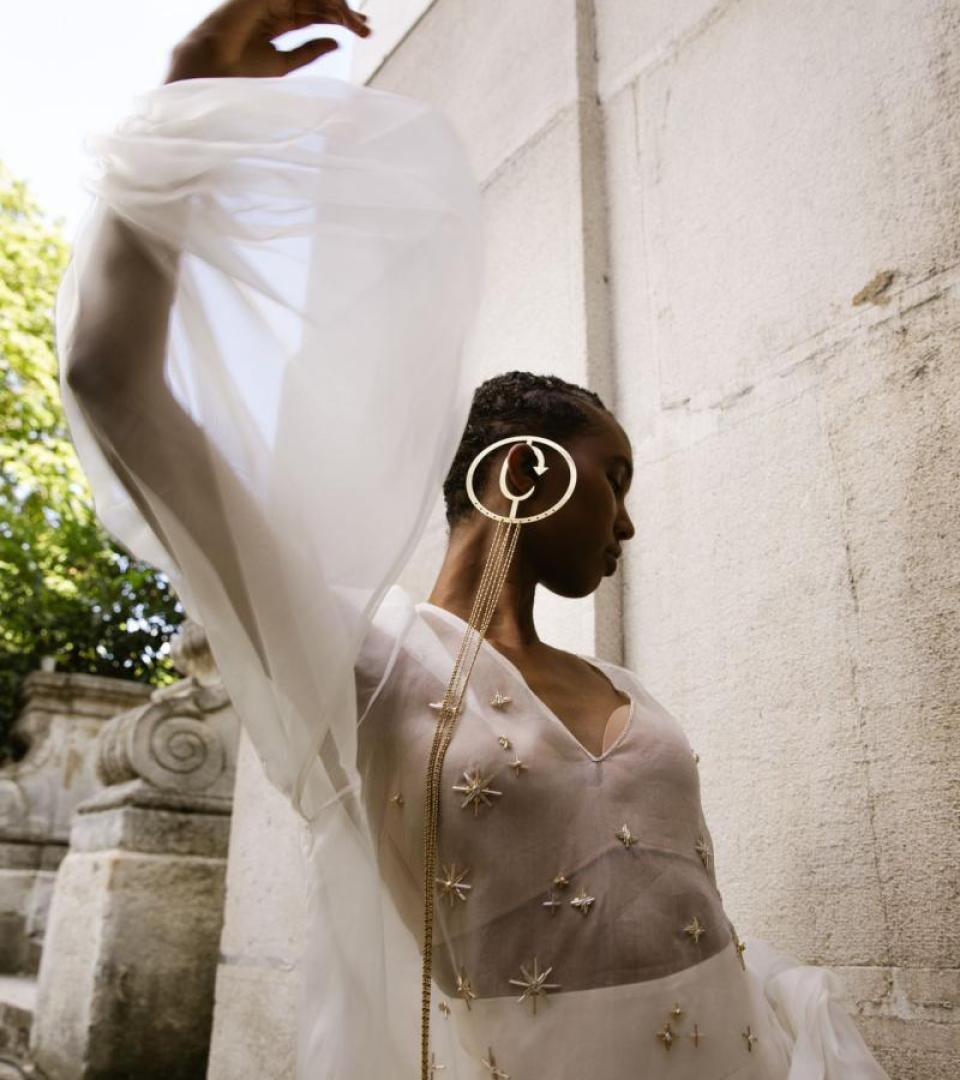What are your thoughts about the significance of this season given so many major designer debuts?
The first word that comes to mind is dichotomy. This season feels like speed dating with fashion history, houses lining up new faces hoping to find “the one.” It’s exciting, yes. But let’s be honest: it’s also a reflection of how sick the industry is: a lack of stability, a frenetic pursuit of immediate results. I truly hope each newly appointed designer will be allowed to fail, learn, and find their grammar over time instead of being thrown out too quickly. A debut is only significant if it rewrites the DNA, not if it just adds gloss. And the real test will not be their first show, but whether they can build a consistent narrative that outlives the hype cycle.
What are the main elements that make your work unique?
I hope DÉMODÉ, my Instagram voice-note series, is bringing a new perspective to the industry. By simply asking insiders what pisses them off about fashion, it raises important questions about what needs to be addressed and improved. And I hope it opens conversations that will lead to fairer solutions.
Also, I think the way I write and speak about fashion (at least in French!) is unusual because it’s highly literary. I love French literature, so I play with words, metaphors, and innuendos a lot. In that sense, it’s a bit unique — I guess. Some people criticize me for it, but when designers talk about their collections, it’s always so poetic. So why shouldn’t we write and speak about fashion in the same way?
In what ways is AI helping you develop and realise ideas that might not have been previously possible?
I just hate the idea that we’re supposed to use AI for everything and anything. To me, that’s laziness and I’m allergic to it. Creativity is supposed to be messy, unpredictable, and human; outsourcing that to a machine feels like erasing the soul of the process.
What aspect of your work excites and stimulates you the most?
The friction. When fashion collides with politics, with class, with culture… that’s where sparks fly. I’m not interested in consensus, I’m interested in discomfort, because that’s where truth lives. If everyone nods politely, nothing changes. Discomfort is the only currency that buys evolution.
Fashion can often be a lab for ideas. How might fashion shows also be a lab for your own ideas?
Runways are mirrors more than labs. They show us what the industry dreams of being. Sometimes utopia, sometimes delusion. I use that reflection as raw material, then I turn it into critique. For me, every collection is less about clothes and more about the ideology stitched into them.
What is something that you believe will change over the course of the year?
The myth of “luxury.” People no longer buy just logos or myths; they want transparency, proof, experience. The illusion is cracking. Also, the price of attention. People won’t pay time or money for empty spectacle; they’ll demand proof of craft, of ethics, of relevance. The “because we said so” era is ending.
What do you enjoy most about Paris Fashion Week?
The contradictions. The tension between genius and ridiculousness is delicious and quite uniquely Parisian.
No other city manages to turn chaos into ritual with such theatrical precision.
What is one aspect of the industry that you would change if you could?
The complacency. Too many people think privilege equals talent. I’d rather give the microphone to the petites mains than to another influencer known for drinking matcha tea every morning in a fake Lululemon outfit bought on Temu. I’m tired of seeing influencers with zero passion for fashion hogging front-row seats; they’re not here to learn or contribute, just to farm content and block out the very people who live and breathe this industry. Same goes for some celebrities…
Do trends still matter?
Trends are just cultural shortcuts. They matter because people need signposts, but the real question is: who writes the signposts? That’s where the power lies. A trend without narrative is just a product, a trend with narrative is a movement.
Given current uncertainties, in what ways do you see brands/houses effectively driving growth?
By abandoning hollow exclusivity and focusing on cultural credibility. Growth will come from collaborations that feel authentic, stories that resonate, and communities that feel respected rather than exploited.
Growth follows trust, trust follows coherence.
How do you see designers sparking and sustaining desire today?
By refusing to be predictable. Desire evaporates with repetition, so edit harder, repeat less, and let process be part of the myth, not nostalgia loops.
What is your favourite way/word to compliment someone’s style?
“You understood the assignment.” Because style isn’t about looking good but about intention. It means you translated personality into clothes, and that’s always more powerful than a trend.
Tell us something surprising about how you got to where you are today?
I never cared about fashion growing up. I was just a bit flamboyant, and that look got me dragged into rooms I hadn’t asked to enter. My first job – interviewing Azzedine Alaïa – happened by accident, not ambition. After that, things snowballed so quickly. I walked away for a decade because I simply couldn’t handle it.
What’s happening for me on social media is, again, an accident. Friends asked me to put something out there about fashion, so I did. I genuinely thought it would cap at 300–400 followers, basically a group chat with a public link. The scale was never the plan. I welcome every bit of support with real gratitude. I’m surprised every day, and I don’t take a single message or follower for granted.
In what ways might you hope to have an impact on fashion this year?
I don’t plan “impact.” That feels presumptuous, and honestly too heavy a responsibility for one person. I don’t see myself as powerful enough to move the machine; I’m just trying to ask better questions. If anything, I’d love to open conversations we keep dodging: about craft and credit, access and labour, and sustainability beyond slogans – and keep them open long enough for real change to find oxygen.
Can you share a mantra that speaks to this moment in time?
Om mani padme hum. It’s a Buddhist mantra. It’s a reminder that compassion and clarity belong together – the “jewel” (wisdom) inside the “lotus” (human messiness). Nowadays, the industry is painfully addicted to all kinds of noise, we need to recentre its intention: make it beautiful, but make it kind, precise, and necessary.
This interview has been lightly edited.



